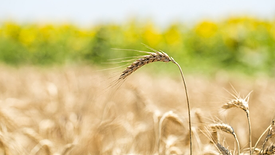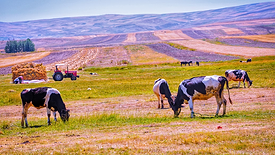Home » Keywords: » climate change
Items Tagged with 'climate change'
ARTICLES
Harnessing AI to Safeguard Food Safety in the Face of Climate Change
In the wake of escalating concerns over climate change and its profound impact on global food safety and security, innovative solutions are imperative
August 8, 2024
Never miss the latest news and trends driving the food safety industry
eNewsletter | Website | eMagazine
JOIN TODAY!Copyright ©2025. All Rights Reserved BNP Media.
Design, CMS, Hosting & Web Development :: ePublishing











